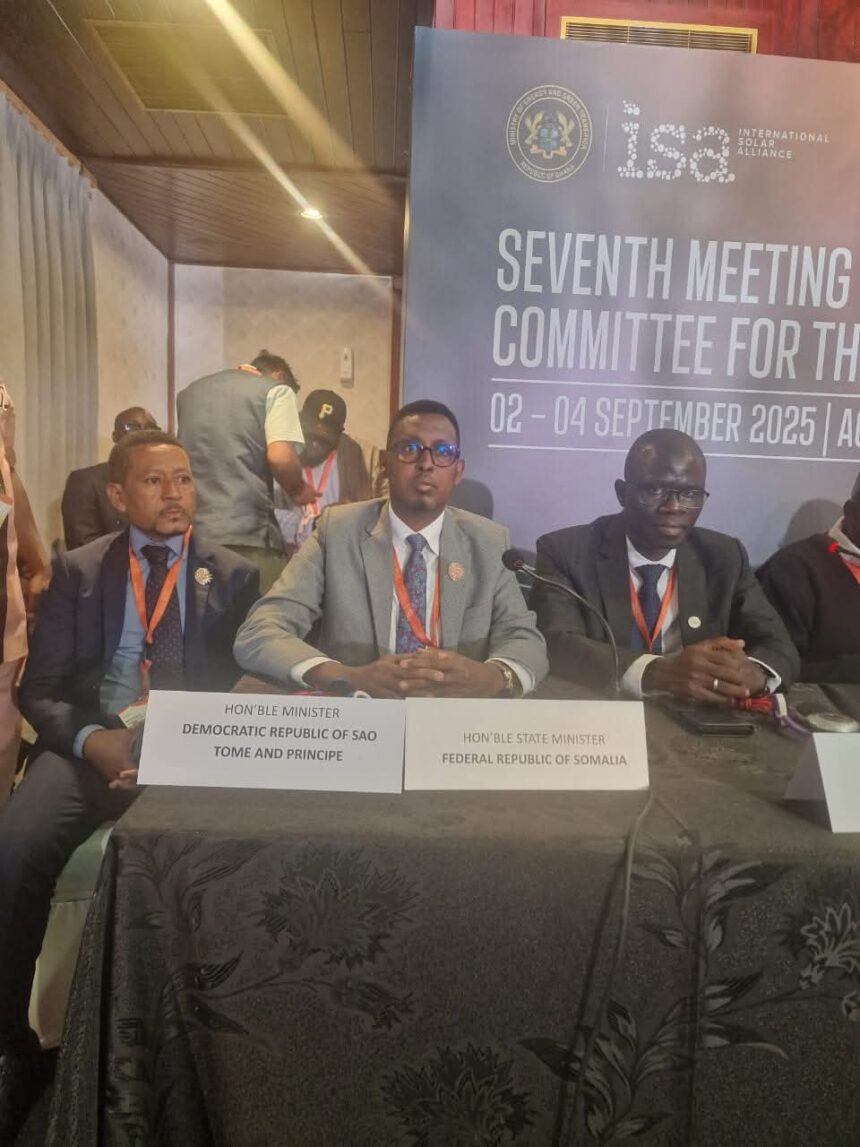Mogadishu, Somalia – Somalia’s strategic commitment to developing its renewable energy sector was on prominent display as the State Minister for Energy and Water Resources, H.E. Mohamed Abdullahi Farah, and a high-level delegation participated in a key ministerial meeting of the International Solar Alliance (ISA) in Accra, Ghana. The summit, held from September 2 to 5, 2025, convened African ministers to drive the continent’s solar energy agenda and foster deeper regional collaboration.
The Somali delegation, which included the Director of the Energy Department, Eng. Abdifitah Abshir Ibrahim, actively engaged in the conference, contributing to discussions on shaping collaborative frameworks and policies for the widespread adoption of solar energy. The event provided a crucial platform for the exchange of ideas on innovative energy solutions, particularly for powering remote areas and productive sectors in developing economies.
During the visit, Minister Farah held a productive bilateral meeting with the Director General of the ISA. The two parties connected on a range of shared issues concerning the deployment of solar technology in Somalia, including the need for technical assistance, capacity building, and investment to accelerate the country’s transition to clean energy. This dialogue is a crucial step in ensuring that Somalia’s energy sector development is supported by robust international partnerships.
As part of the visit, the delegation toured a major renewable energy project in Accra, observing the “Africa’s Largest Rooftop Solar System.” This practical experience provided valuable insights and a tangible example of the scale and application of solar technology, which can inform Somalia’s own energy projects.
Somalia’s active participation in this international forum highlights its proactive stance on climate action and its vision to build a more resilient and sustainable energy future. The outcomes of these meetings are expected to pave the way for tangible projects that will not only enhance the nation’s energy security but also contribute to economic growth and improved livelihoods for its citizens.





